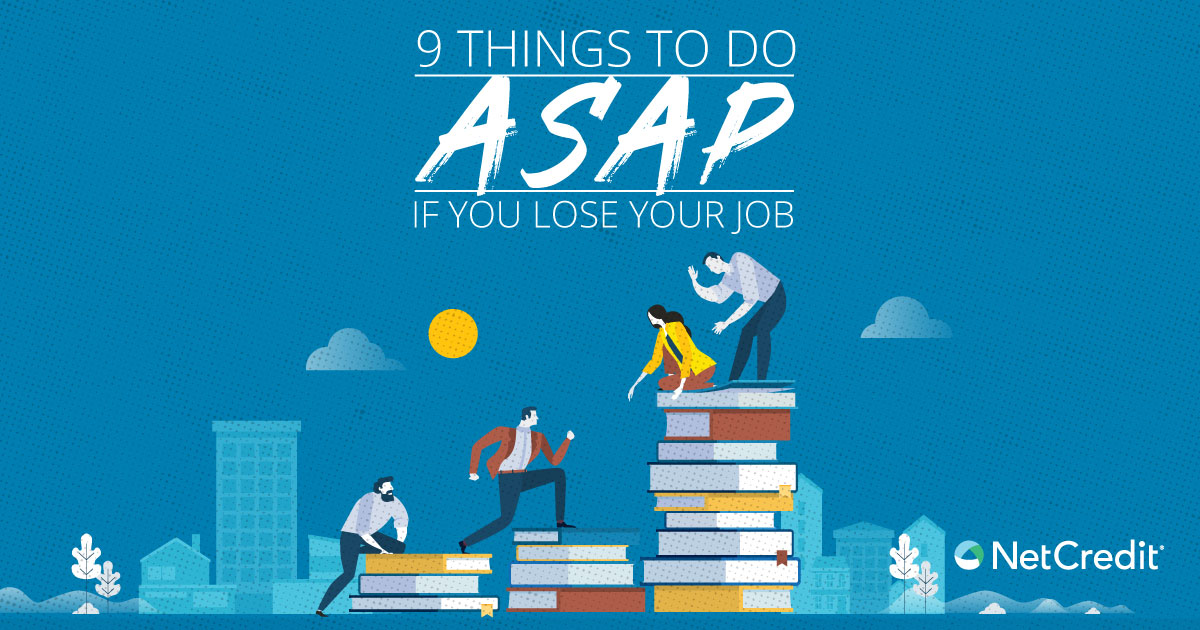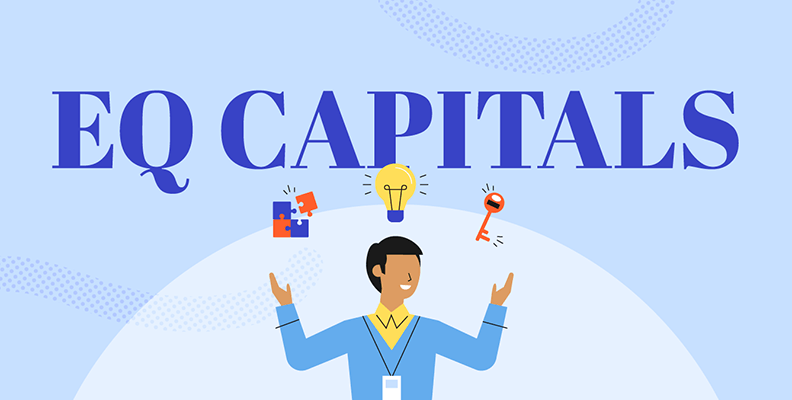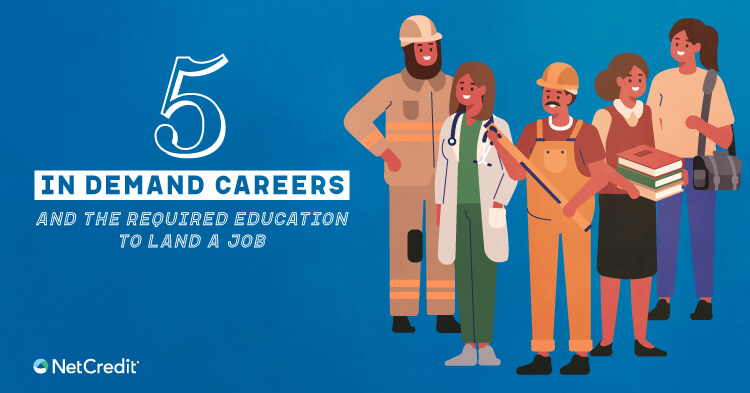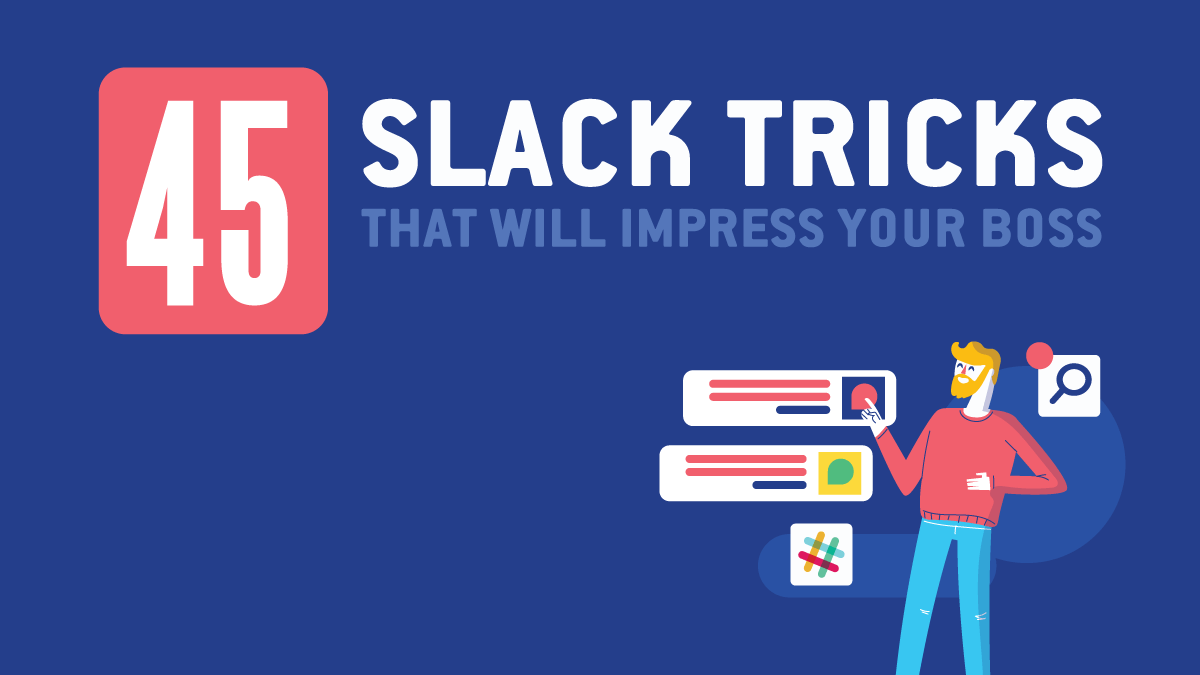In just over a decade since the Great Recession, COVID-19 has fundamentally upended our global existence, from drastic and deadly strains on healthcare systems to massive worldwide closures. If that weren’t hard enough, millions of Americans are newly unemployed in the heat of a pandemic.
While there’s no easy time to manage the loss of a job, it’s helpful to remember that nothing lasts forever. A temporary setback right now can serve as the springboard for a new chapter of your life.
If you’re unemployed or preparing for a potential employment change, these tips can help you deal with the stress and uncertainty of job loss so you can get back on your feet faster.
Urgent Matters to Handle If You Lose Your Job
You probably have a lot on your mind, but there are a few important matters to take care of if you just lost your job. No matter what happened or why, try to take care of these time-sensitive responsibilities as soon as you can.
1. Apply for Unemployment Benefits and Reevaluate Your Budget
With the incredible surge of layoffs and business closures, a record-high 22 million people filed for unemployment in just a short period. Though you may not have qualified under previous guidelines, coronavirus-related relief programs across the U.S. have expanded unemployment coverage. State-by-state availability and terms vary, but you can learn more about your options and file for unemployment in your state here.
You should also create a new, lean budget and cut down on unnecessary expenses whenever possible. While it might be tempting to indulge in retail therapy to cheer yourself up, it’s essential to not do anything now that can hurt yourself later down the line.
2. Work With Your Previous Employer
You should never burn a bridge in your professional career — your network, including your past coworkers or managers, can help you get through this time. Regardless of the reason you’re no longer working, your former employer may have a variety of post-employment resources or opportunities to assist you.
If possible, reach out to an HR representative with your previous company for any job aid or placement programs, such as counseling, resume or professional skills services. Your employer may be temporarily insolvent or closed, but it’s worth reaching out anyway to keep your relationship open.
3. Secure Health Insurance
If you recently lost employer-provided health insurance, you’re eligible to buy additional coverage through the Cobra program within 60 days of your termination date. Otherwise, you can apply for Affordable Care Act health insurance options through HealthCare.gov also within 60 days of your termination date. Keep in mind that if you miss the opportunity to apply for health insurance through either option, you may have to wait until the next enrollment period, which can be as far as one year away.
4. Connect With Your Network
Although it’s not always easy to ask for help, someone in your extended network might have the solution to your problem. Whether you’re ready to start working again or not, notify your connections of your new availability. The search process may take a while, and your network may know about opportunities that aren’t advertised or available yet.
If you don’t have a LinkedIn page, create an account and start connecting online. The bigger your network is, the better your chances are of finding a position through someone you know.
5. Update Your Professional References
Use this time to secure professional references — look for people who know you well and would speak to your skill set and accountability. While not all positions require professional references, you should make sure to give your contacts enough time to consent and prepare to speak on your behalf.
6. Prepare for the Job Hunt
The job search process may be long and tedious, and it’s understandable to want to jump back in right away. In reality, economic recovery might be a slow process. With more people out of work than ever before, jobs are extremely scarce and competition is at an all-time high.
If possible, give yourself room to carefully consider your next career steps. Whether you look for the same type of position or are exploring in a new field, now is the time to update your skill set, resume and interview skills. For more help with the employment search, read our guide on finding a job after COVID-19.
Coping with Stress and Negative Thoughts
Losing a job can trigger a host of negative feelings — whether you’re confused, angry or completely stressed out about the change, it’s a big adjustment to your everyday life. These tips can help you cope with the emotional impact of losing a job.
7. Let Yourself Feel the Emotions
Give yourself time and space to experience all of the emotions, like stress and anxiety — harboring anger and resentment can impact your ability to heal and move on from your situation. Try to avoid attaching any personal feelings to your job loss or those you worked with, and remember that the person who let you go likely hated doing it as much as you did.
Similarly, it’s important to not let your previous situation impede your future job search process. Don’t let unresolved feelings affect your next employment opportunity. Avoid posting any negative comments about your experience or past employer online — you don’t want these temporary feelings to be eternally published on the internet.
8. Channel Your Energy
You might find that you have a lot of free time or excess energy on your hands. Although the search process can feel like a job in itself, it may come to a point where you’ve temporarily exhausted your available options.
Try to use your time and resources to be productive, learn a new skill or just get healthy. Advancing your skill set can cause a confidence feedback loop — as you practice and improve your technique, your inward and outward confidence increases. As you improve your skill set and your ability to achieve goals, you’ll have more opportunities to pursue, both personally and professionally.
9. Realize That It Isn’t About You
You may have gotten hurt, and that’s completely understandable — your job loss may have nothing at all to do with you. As frustrating as that may be, it’s possible that you’ll never understand the whole picture. But you can’t dwell on the past and expect to advance your situation forward.
For additional information about COVID-19, healthcare options and unemployment resources, head to Benefits.gov or Coronavirus.gov.






